The content of the article
Dizziness is a common symptom in expectant mothers. In some it is accompanied by a slight turbidity, while in others it may end in a swoon.
Of course, if the head is spinning rarely and not for long, then the condition is due to physiological changes in the circulatory system. The body is rebuilt to carry the child, an additional circle of blood circulation appears, the pelvic organs are filled with blood.
Another thing is when dizziness is accompanied by symptoms: general weakness and drowsiness, impaired coordination, darkening in the eyes, jumps in blood pressure, hot flashes, fainting. In this case, the pathology may indicate serious health problems.
That is why it is important for a pregnant woman to know when dizziness is the norm characteristic of an “interesting position”, and when it indicates hidden pathologies or diseases.
Causes of dizziness in expectant mothers
First of all, this condition can occur in women who are at risk:
- hypotension (low blood pressure);
- anemia (anemia);
- fluctuations in plasma glucose concentration;
- anorexia, fasting, diet, fasting, vegetarianism;
- prolonged exposure to the sun (accommodation in warm regions);
- office work (prolonged lack of fresh air causes dizziness);
- weight lifting, physical activity.
There are also certain reasons why a pregnant woman may feel dizzy.
- Severe toxicosis. The most common cause of the disease. Vomiting and general weakness lead to the fact that a woman has a disturbed sleep and nutrition regimen, not enough energy components and oxygen enter the body, and there is an active loss of fluid.
- Diseases against which the blood supply to the central nervous system and brain is disturbed (osteochondrosis of the thoracic and cervical spine, benign and malignant formations, cardiovascular pathologies, vegetovascular dystonia, migraines, serotonin deficiency). Dizziness can also be tormented after traumatic brain injuries or surgeries performed in this area.
- A sharp drop in pressure, which may be due to weather or other conditions.
- Developing anemia. As a rule, dizziness passes after replenishing iron, vitamin B, etc.
- An allergic reaction (dizziness occurs with respiratory, less commonly food allergens).
- Fainting condition. In this case, the future mother may feel dizzy, get dark in her eyes, show cold sweat, and limbs go numb.
- A sharp decrease in glucose also leads to dizziness (often in the afternoon, when activity increases).
- Overheating. A prolonged stay in a hot room, sunbathing or just a hot bath (by the way, is contraindicated during pregnancy) can cause severe dizziness in a future mother.
- Change in body position (usually with a sharp rise from a prone \ sitting position). This situation is typical not only for women “in position”, but also for an ordinary person, because with a rapid change in position, the blood simply does not have time to rush to the brain and deliver the oxygen it needs.
- Thyroid disease. Against the background of an increase in the organ and diffuse changes, the head may periodically spin.
- Pathology of the inner ear, vestibular nerve.They can disrupt coordination and the vestibular apparatus, resulting in dizziness and temporary loss of balance.
- Taking medications. Some medicines have a side effect - dizziness. Also, a symptom can occur if you take a certain type of medicine on an empty stomach.
- Change in the degree of hemoglobin (a component that carries oxygen) in blood plasma.
Why dizzy in the early and late stages
In the first weeks of pregnancy, the internal systems and glands are rebuilt, producing hormones and enzymes necessary for life. An additional network of blood vessels, which pump more blood into the pelvic area, is also growing. To drive new blood cells, the heart intensifies its work, which can lead to general malaise.
In the early stages, these new mechanisms are not yet optimized, so some areas of the body may temporarily lack oxygen and nutrients from the blood. If oxygen starvation occurred in the brain area, then the expectant mother feels severe dizziness right up to a swoon, as well as frequent headaches, migraines.
Vomiting with toxicosis also leads to the loss of nutrients and fluid, which means that the total blood volume is reduced and the brain is starving.
By the beginning of the second trimester, the body adapts to changes, but why does not the dizziness go away? The fact is that it is during this period that the uterus grows actively and presses adjacent vessels. This affects the functioning of the circulatory system and leads to stagnant processes. Also in the second trimester, dizzy with a sharp change in body position, a prolonged absence of fresh air, starvation.
In women with hypotension, as well as in the presence of a history of vegetovascular dystonia, dizziness often intensifies in the second trimester.
At later dates (the end of the second, third trimester), the uterus greatly increases and squeezes the main veins (for example, the vena cava), especially when sitting and lying down. That is, often the pregnant woman’s head is spinning precisely during the period of rest and rest. Therefore, doctors do not recommend sleeping on their backs in late periods and working at a computer for a long time without relaxing gymnastics.
Also in the later stages anemia can develop and the hemoglobin concentration may decrease, and amid oxygen starvation, dizzy. Causes of late-stage anemia: insufficient production of red blood cells - red blood cells, living in a region with low atmospheric pressure, diseases of the upper respiratory tract, bleeding disorders and blood flow.
Surprisingly, the cause of dizziness in the 3rd trimester may be the usual overeating sweets. Simple carbohydrates (sweets, cakes, cookies, confectionery) dramatically increase plasma glucose. In response, the body releases insulin, which also quickly reduces sugar, which is accompanied by general malaise, weakness and dizziness.
After 38 weeks, the body begins to actively prepare for childbirth, as a result of which the blood rushes abundantly to the uterus and pelvic organs, but other organs and systems, including the brain, are starving.
Diagnosis and treatment
If the expectant mother is tormented by dizziness regularly, it is necessary to exclude serious pathologies by making an appointment with highly specialized doctors: cardiologist, gastroenterologist and neurologist. Doctors additionally prescribe urine and blood tests, an MRI of the brain, an electrocardiogram, etc.
Before receiving a doctor, the expectant mother and relatives should learn how to provide first aid for dizziness.
- A pregnant woman is laid on a horizontal surface and asked to cover her eyes.A pillow is placed under the head, legs are lifted upwards (it provides a rush of blood to the brain). If it is not possible to lay a woman, then it is necessary to seat her, supporting her arms, and tilt her head down.
- A cool bandage is applied to the forehead. You can also massage the area of the temples.
- It is necessary to measure the pulse and blood pressure of the future mother. With the permission of the doctor on duty, they try to stabilize the pressure.
- Pregnant women are not allowed to faint and are brought to their senses.
- Open a window for fresh air. Also include air conditioning (fan), but do not direct directly to the woman.
- A pregnant woman who has come to her senses is watered with warm and sweet tea.
- If dizziness is accompanied by vaginal discharge, vomiting, sharp abdominal pain, impaired vision, fainting or hot flashes, then the pregnant woman must be urgently hospitalized.
If the head is very dizzy in the later stages, then the development of gestosis (late toxicosis) is possible, which poses a threat to the health of the mother and baby.
As a rule, dizziness does not require a pregnant woman to stay in the hospital. Therapy is prescribed depending on the cause of this symptom.
- To stop the signs of toxicosis, the complex preparation Tserukal is prescribed.
- If dizziness occurs against the background of anemia or low hemoglobin, then iron preparations and a special diet are prescribed, including rose hips, green apples and pomegranates, meat and offal (especially the liver).
- When the cause of the disease is a fluctuation in the plasma sugar level, then an endocrinologist’s consultation and an individual selection of diet and natural preparations, including for the treatment of gestational diabetes, are required. Also, the expectant mother needs to eat regularly in small portions in order to avoid changes in glucose levels. Diet, fasting and fasting are contraindicated! The consumption of sweet, simple carbohydrates is minimized.
- If the cause of dizziness is vegetovascular dystonia, then sedatives and plant-based sedatives (motherwort, valerian, mint) are prescribed.
- In case of chronically reduced pressure and associated dizziness, drugs that stimulate the nervous system (tincture of Eleutherococcus, pink radiola, ginseng), as well as natural green and ginger tea, coffee (quantity controlled) are prescribed.
Treatment for dizziness can also be found in traditional medicine recipes. For example, a decoction of lemon balm or peppermint helps to calm the nervous system and reduce headaches. You can also do inhalation with these herbs or smoke essential oils.
Dizziness Prevention
The following recommendations will help prevent dizziness:
- Regularly walk in the fresh air (it is favorable to stay at sea resorts, in forest resorts, etc.).
- To rise from a sitting and lying position slowly, and in the later stages it is imperative to seek support in the form of objects.
- To do special gymnastics and yoga.
- Do not stay in one body position for too long, while avoiding resting on your back.
- Long stay in a stuffy, unventilated room.
- Do not take hot baths, refuse to visit the sauna and baths, avoid the daytime sun to get a tan.
- Eat correctly and regularly, and take complex vitamins for pregnant women.
- Drink enough fluid, which is important for metabolism in cells and an adequate amount of blood plasma.
- Monitor blood pressure using a blood pressure monitor.
Expectant mother should be careful and control their health daily. It is important to listen to your body and notice even a slight malaise. If dizziness is not an isolated case and is accompanied by a deterioration in well-being, it is necessary to consult with your doctor.
Video: low blood pressure and dizziness during pregnancy

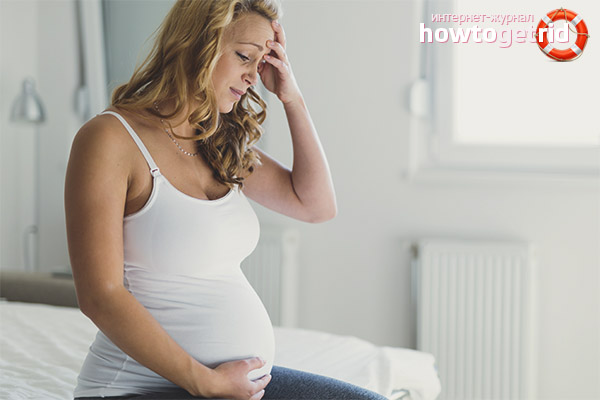
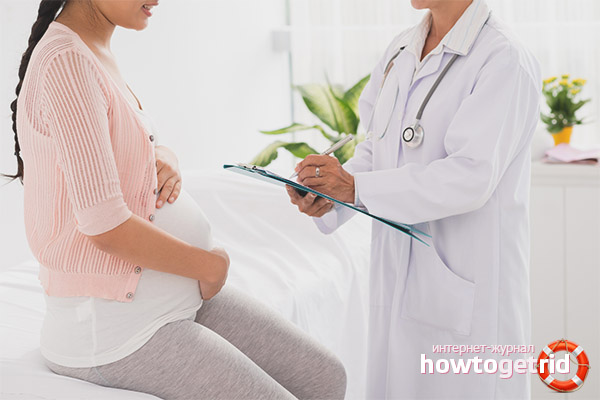


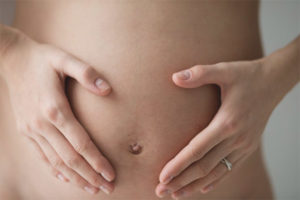

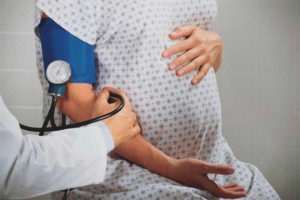
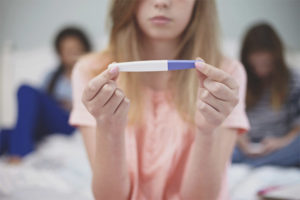
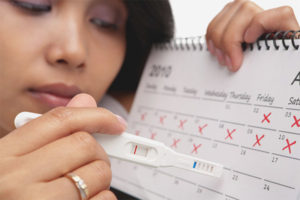

Submit